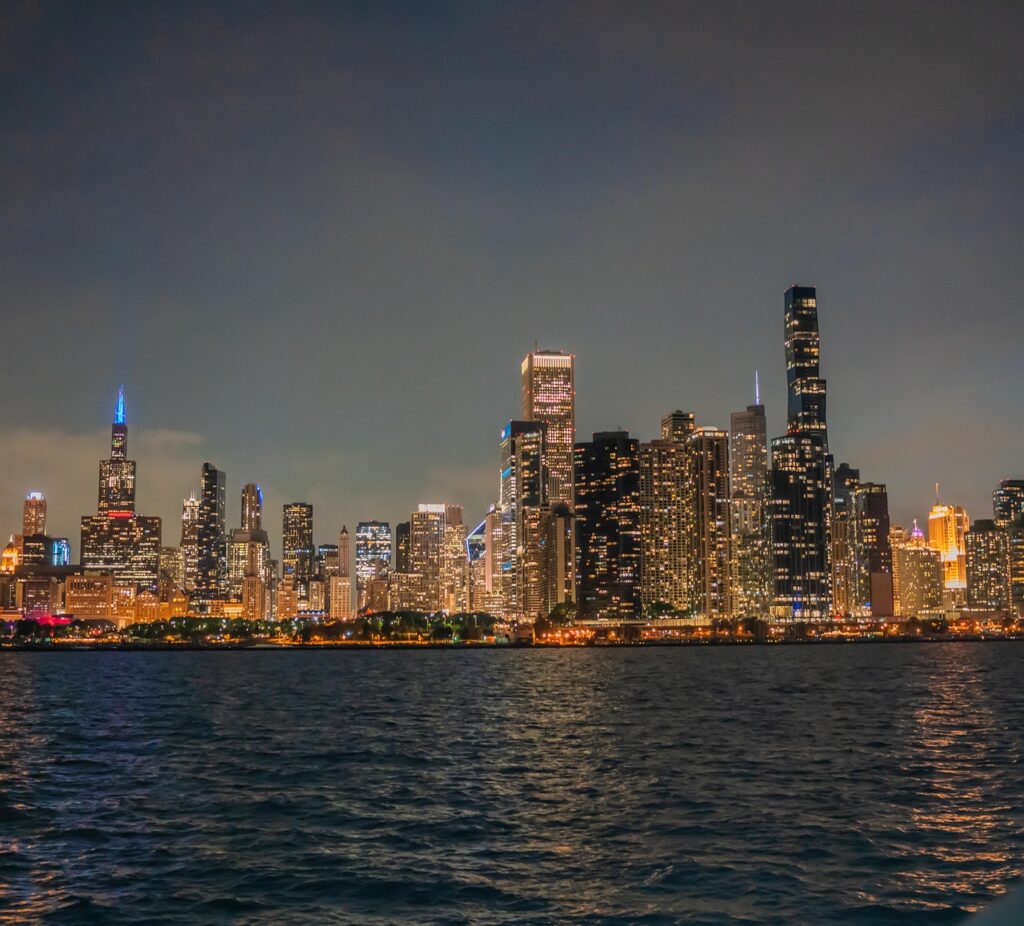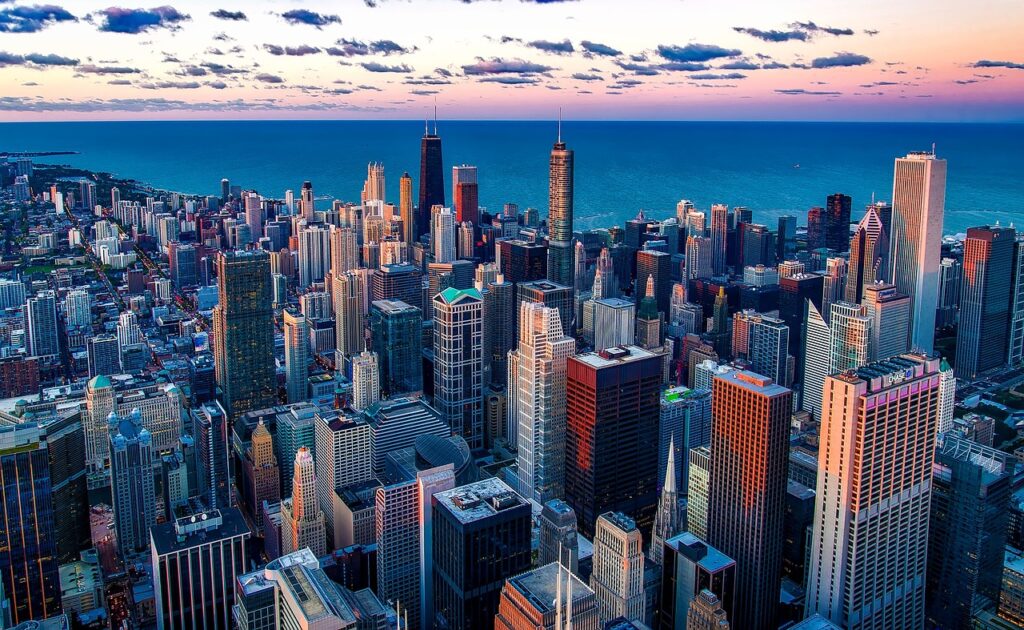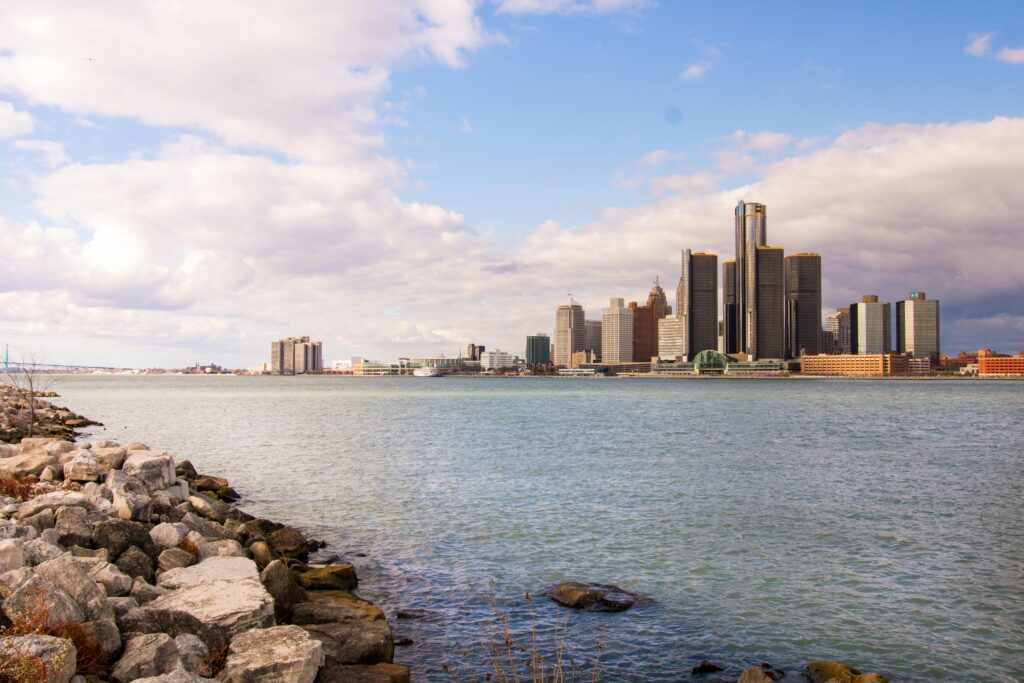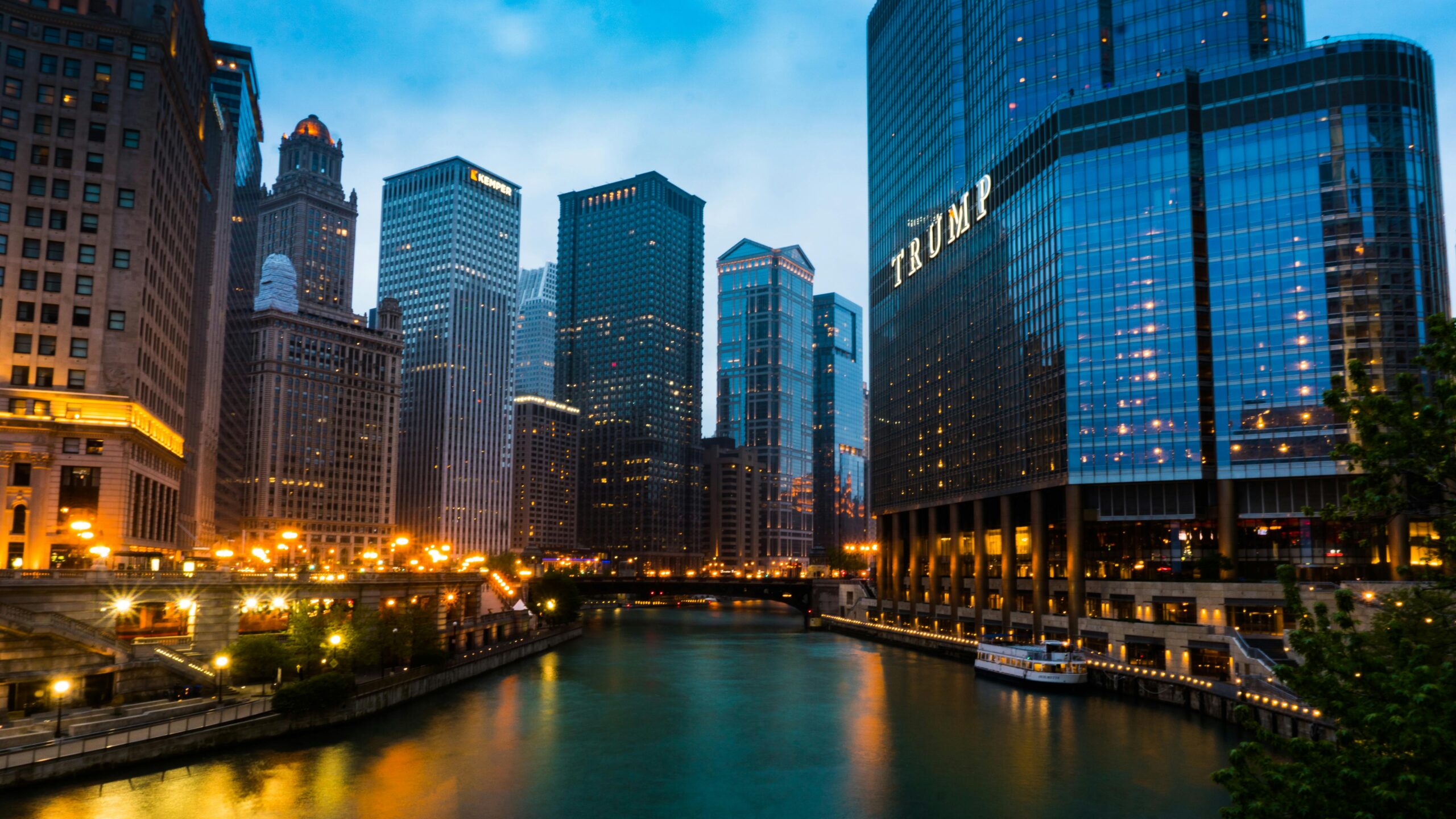Detroit’s historic Michigan Central Station—long a symbol of decay—has entered a bold new chapter. On June 2, 2025, Ford Motor Company’s Michigan Central announced detailed plans to introduce a boutique hotel and high-end restaurant within the century-old Beaux-Arts depot. This development marks another milestone in Ford’s $740 million effort to transform the long-vacant station into a hub for mobility innovation, community events, and commercial activity. Below, we explore the station’s storied past, the vision for its future, and what travelers and locals can expect when the doors open.

From Rail Hub to Ruin—and Back Again
A Storied Past:
- Opened in 1913, Michigan Central Station was once North America’s tallest rail terminal and a gateway for millions of travelers. Designed by Warren & Wetmore (the same firm behind New York’s Grand Central), its marble-lined waiting rooms and 18-story clock tower symbolized Detroit’s status as a booming industrial center.
- By the 1950s and ’60s, declining passenger rail use and suburban sprawl led to dwindling service. The last Amtrak train departed in 1988, and the station sat empty for decades, succumbing to vandalism, water damage, and structural neglect.
Ford’s Acquisition and Redevelopment Vision:
- In 2018, Ford quietly purchased the station and surrounding land in Corktown, Detroit’s oldest neighborhood. Their goal: build a campus fostering “mobility experiments”—from autonomous-vehicle testing to advanced battery research—while preserving the site’s architectural grandeur.
- To date, Ford has restored the façade and roof, replaced thousands of windows, and stabilized structural elements. Portions of the ground-floor “Great Hall” now host community events, art installations, and pop-up markets, hinting at the building’s revival.
The Hotel: A Boutique Stay With Historic Charm
Curated Guest Experience:
- Design and Capacity: The new hotel will occupy floors 2–5 on the station’s south side, offering 120 rooms designed by local Detroit architects. Each room will blend original 1913 accents—coved ceilings, exposed brick, and arched windows—with modern amenities like in-room tablets, digital concierge apps, and sustainable climate controls.
- Heritage Suites: A handful of “Heritage Suites” will preserve original limestone walls and have views into the restored waiting room. Furnishings will feature reclaimed wood from Detroit’s historic factories and bespoke artwork by Michigan-based artists.
Amenities and Services:
- Lobby and Lounge: The hotel lobby, adjacent to the station’s grand rotunda, will feature a crystal chandelier replica of the original glasswork, customized seating alcoves, and a small café offering locally roasted coffee and pastries.
- Wellness Center and Rooftop Terrace: Guests can access a fitness and wellness center on the fourth floor, complete with panoramic views of the Detroit River. Above, a rooftop terrace will host seasonal pop-up events—live jazz nights, sunset yoga, and stargazing sessions that evoke the station’s former celestial-themed décor.
- Meeting and Event Space: Two mid-sized ballrooms, each seating up to 100 guests, will occupy the penthouse level, catering to business retreats, weddings, and community forums. These rooms will retain arched steel trusses, echoing the station’s original industrial aesthetic.

The Restaurant: A Destination Dining Experience
Culinary Concept:
- Menu Philosophy: Under the guidance of a Michelin-starred Detroit native, the restaurant—named “Clocktower at Michigan Central”—will showcase farm-to-table Midwestern cuisine with international flair. Expect dishes like smoked Lake Superior whitefish crudo, heirloom tomato tartare, and grass-fed beef short ribs braised in local stout.
- Local Sourcing: Ingredients will be sourced from Michigan farms and artisan producers—heritage grains from Traverse City’s Mill Project, cheeses from Mackinac Island creameries, and seasonal vegetables from urban farms in Corktown. This supports Detroit’s agricultural ecosystem and reduces the restaurant’s carbon footprint.
Design and Ambiance:
- Historic Meets Modern: Situated on the station’s mezzanine level overlooking the Great Hall, the dining room will preserve original oak wainscoting and mosaic floors. Custom banquettes upholstered in Detroit-inspired patterns will flank long communal tables made from reclaimed white oak.
- Open Kitchen and Chef’s Counter: A barrel-vaulted open kitchen will allow diners to watch chefs prepare dishes. Behind this, a chef’s counter seats eight, offering a prix fixe tasting menu with wine pairings drawn from Michigan’s burgeoning wine-country regions.
- Bar and Lounge: Adjacent to the main dining area, a corner bar will offer craft cocktails featuring Michigan whiskey, apple brandy, and foraged botanicals. Large industrial sash windows—restored and retrofitted for soundproofing—will frame views of passing Amtrak trains at neighboring platforms.
Complementary Development: Retail, Offices, and Mobility Innovation
Mixed-Use Campus Layout:
- In addition to the hotel and restaurant, Ford envisions retail pop-ups—bookstores, boutiques selling Detroit-designed goods, and a local bakery—occupying the eastern concourse.
- Office space on floors 6–12 will house teams working on electric-vehicle research, autonomous-system design, and smart-city software. Collaborative labs will connect these innovators with local universities and startups through dedicated co-working “Innovation Suites.”
- A new “Mobility Dock” on the station’s west side will host ride-sharing and micromobility services, integrating electric shuttles, e-bikes, and automated test vehicles into the city’s transit network. The dock will also serve as a “Living Lab,” where engineers monitor traffic and pedestrian flow in real time.
Economic and Community Impact
Job Creation and Local Hiring:
- Ford projects that the hotel, restaurant, and ancillary retail spaces will create roughly 350 permanent jobs—front‐of‐house staff, kitchen teams, housekeeping, event coordinators, and maintenance crews. An additional 200 construction and renovation positions were filled over the past 18 months.
- Committed to community investment, Ford has partnered with the Michigan Works! agency to recruit and train residents from Corktown and neighboring Southwest Detroit. Job-readiness workshops, hospitality training, and paid internships at nearby hotels and restaurants have already graduated over 50 local candidates.
Catalyzing Neighborhood Growth:
- Since Ford’s initial purchase, property values in Corktown have risen about 15%, attracting new cafés, art galleries, and coworking spaces. The station’s revival—once complete—promises to draw business travelers and tourists who might stay in Detroit rather than suburban hotels, keeping dollars within the city.
- Nonprofit partners like Midtown Detroit Inc. are working with Ford to ensure affordable housing remains available. A new “Community Land Trust” will acquire up to 50 homes, stabilizing rents and preventing displacement among long‐time residents.

Timeline and Opening Schedule
- Q3 2025:
- Hotel interior work concludes; soft opening for staff and stakeholder previews begins in August.
- Restaurant “Clocktower” finishes final inspections; test menu dinners for press and community leaders scheduled in September.
- Q4 2025:
- Official grand openings for hotel and restaurant planned during the Detroit Jazz Festival in mid-September, leveraging the influx of international visitors.
- Mobility Dock and first retail pop-ups launch concurrently, with public tours highlighting the restored Great Hall.
- Early 2026:
- Office tenants from Ford Research and Technology move in, and Innovation Suites open for startups.
- Additional retail tenants, including a coworking café and a boutique bookshop, commence operations.
Frequently Asked Questions
Q: Where exactly is Michigan Central Station located?
A: The station sits at 2001 Rosa Parks Blvd., in Detroit’s Corktown neighborhood—about 1.5 miles west of Downtown, adjacent to the Michigan Central Station Historic District.
Q: How many rooms will the hotel feature, and how can I book?
A: The boutique hotel has 120 rooms, including 10 “Heritage Suites.” Reservations will open July 1, 2025, via the station’s dedicated website and major booking platforms. Expect seasonally tiered rates—peak (September–October, spring festival season) and off-peak (January–April).
Q: What price range can guests expect?
A: Standard rooms will start around $250 per night, with Heritage Suites beginning at $450. Rates include continental breakfast and access to the fitness center. Expect higher rates during Nickel City Jazz Festival (February) and Detroit Jazz Festival (September).
Q: Will the restaurant require advanced reservations?
A: Yes—Clocktower at Michigan Central will operate on a reservations-only basis for dinner service, with limited communal seating available for lunch. Booking slots open 30 days in advance via OpenTable and the restaurant’s own platform.
Q: Are there parking options for hotel and restaurant guests?
A: A new underground garage beneath the station provides 200 spaces—electric-vehicle charging stations included. Valet service will be available, and limited curbside drop-off exists on Orleans Street for ride-hailing pickups.
Q: How is the historic architecture being preserved?
A: Ford engaged preservation architects to restore the original limestone façade, clock tower, and accordion vault–arched windows. Interior restoration preserved the mosaic tile–floor patterns and steel trusses. Modern additions—like glass atria and escalator shafts—are designed to be reversible without damaging original materials.
Q: Can non-guests visit the Great Hall and communal areas?
A: Yes. The restored Great Hall is open to the public from 8 am to 10 pm daily, hosting rotating art exhibits, pop-up markets, and community events. A small visitor center near the main entrance offers a self-guided tour booklet detailing architectural features and Ford’s redevelopment efforts.
Q: Are there plans for public transportation connections?
A: Detroit’s SMART bus Route 53 now has a dedicated stop outside the station. In early 2026, an extension of the QLINE streetcar is slated to reach Corktown, linking the station directly to Downtown. Until then, ride-share zones and e-scooter docks provide last-mile options.
Q: Will the hotel and restaurant be dog-friendly?
A: The station hotel allows dogs under 25 lbs in designated guest rooms—additional cleaning fees apply. Clocktower’s outdoor terrace welcomes leashed pets with water bowls and a small dog menu offering house-made “puppy treats.”
Q: How does this project fit into Detroit’s larger resurgence?
A: Michigan Central Station’s transformation epitomizes Detroit’s post-pandemic revitalization—melding historic preservation with innovation. By creating a hub for mobility research, hospitality, and cultural events, it underscores the city’s pivot toward a diversified, knowledge-based economy.

Sources The Detroit News


